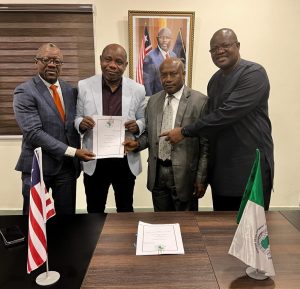The Government of Liberia and the African Development Bank (AfDB) have today signed an agreement for a US$3.872 million grant that will finance the upgrade of the payment infrastructure and system of the Central Bank of Liberia.
The AfDB Board of DirectorsSystem approved the financing on 17 March 2023, building on the 2016 payment development project the AfDB previously supported to upgrade the Automated Cheque Processing and Clearing House and Real Time Gross Settlement System.
The support also strengthens the CBL`s primary data center and recovery sites. The effort goes to stand up the payment eco-system in Liberia for increased efficiency, foster growth and innovation, and prepare the country for increased regional integration.
It is also expected to maximize the potential to strengthen the financial sector, build financial stability and bridge the financial inclusion gap. As the CBL has already mobilized US$9 million from the World Bank to build the National Electronic Payment System, NEPS, the AfDB support will provide the infrastructure support for the NEPS.
At the signing ceremony Thursday, May 18, 2023, at the Ministry of Finance and Development Planning, Central Bank Executive Governor, J. Aloysius Tarlue, Jr. thanked the AfDB Country Manager, Mr. Benedict Kanu for the support in ensuring that the project comes to fruition.
“The project’s primary objective is to strengthen the payment ecosystem in Liberia for increased efficiency and to foster growth and innovation. It targets the automated processes, the automated clearing house, the real-time gross settlement system which forms the backbone for payment processes in the country,” the CBL Executive Governor said at the signing of the agreement.
“The process will also involve the upgrade of the CBL main data center – a disaster recovery site. It’s expected to impact institutions and government ministries and agencies involved in payments.
Other beneficiaries include commercial banks and their customers – all of whom will experience improved services. The project will also contribute to increased financial inclusion in fostering regional integration through technological upgrades to the required status.”
Also emphasizing the significance of the grant facility, the AfDB Country Manager said it will enhance the digitalization of Liberia’s payment system.
“Central Bank of Liberia will implement this project, but they will not be alone. They will be bringing in private sector players such as commercial banks. It will help other government institutions to digitize their activities and payments and in so doing promote financial inclusion not only for the youth but for women – making it easier for money to move from one home to the other in the visual space,” said Mr. Kanu.
“This is also going to help beef up private sector development. This will be an opportunity again to promote that aspect while doing a very important favor for a theme that we are all familiar with – general integration within the Mano River Union and beyond.”
Finance and Development Planning Minister, Mr. Samual Tweah says the signing of the agreement shows that Liberia is getting closer to synchronizing all its payment systems to a national switch that will ensure payment for goods and services is very easy in Liberia.
“Today’s signing signals that we are getting closer to achieving this milestone where ultimately our payment system will move to another equilibrium – another level. This will be another milestone for financial inclusion by mainstreaming many of our ordinary Liberians into the payment switch, making payment for goods and services easier especially for Liberians in the rural areas,” said Minister Tweah.
“We want money to move through this system – we want mobile money payments, so people don’t have to use cash which also has benefits for macroeconomy.”
The AfDB stressed that the support is critical to efforts gear toward improving financial inclusion in Liberia which currently stands at 44.2% (Findex 2021), and reach to disenfranchised populations including youth, women, smallholder farmers, Micro Small and Medium Enterprises (MSMEs) and other rural populations. The implementation of the new project will commence by July 2023. Press release

